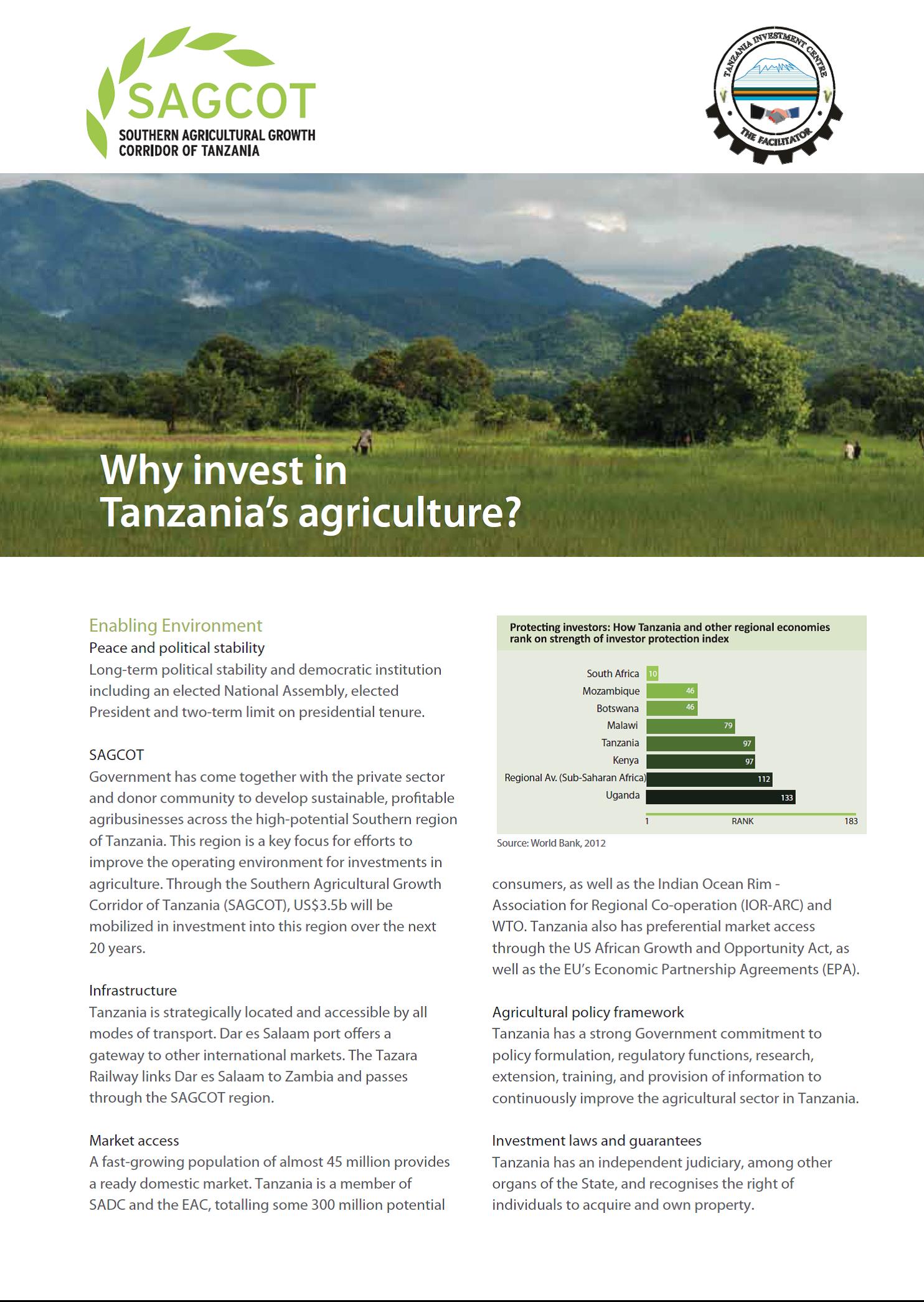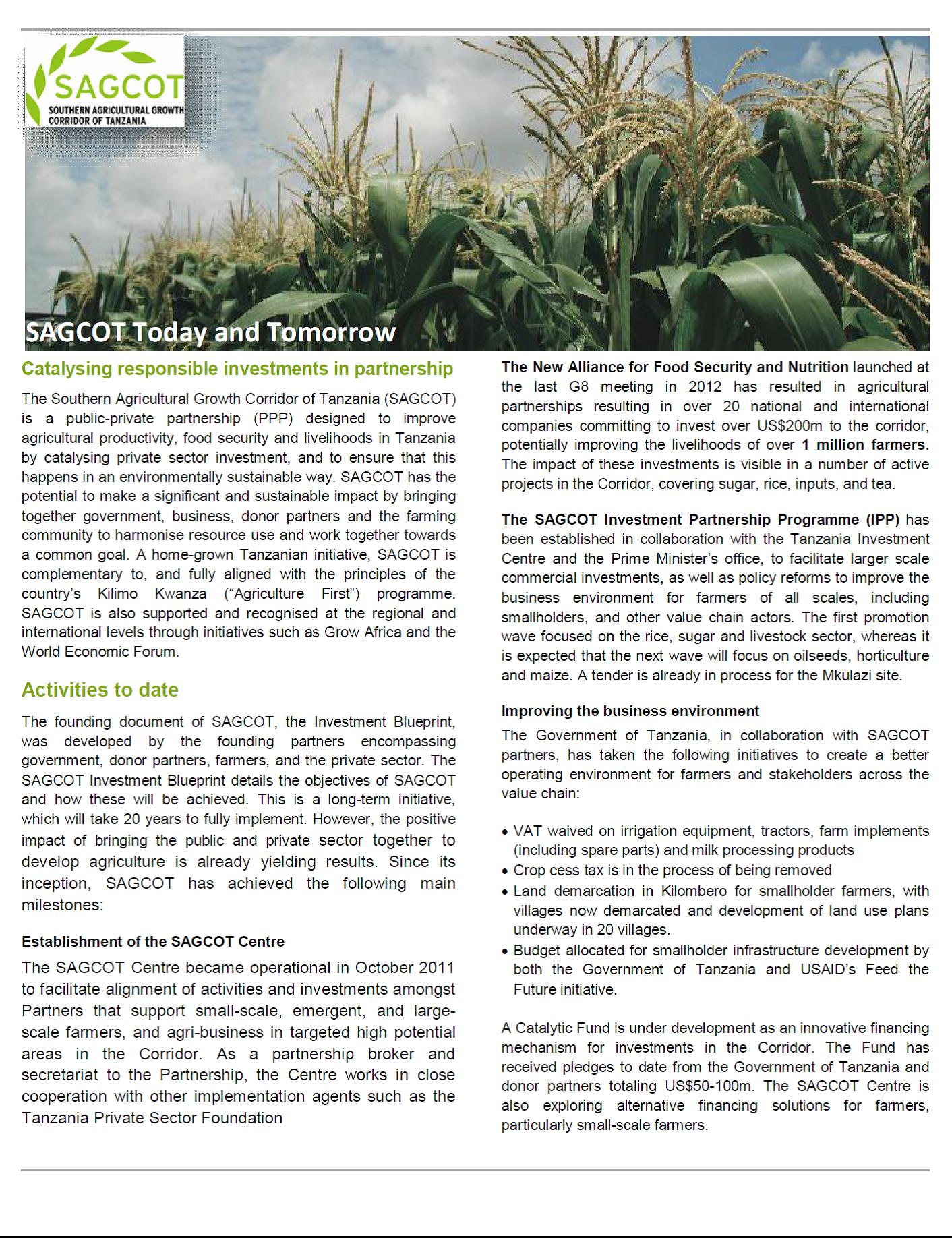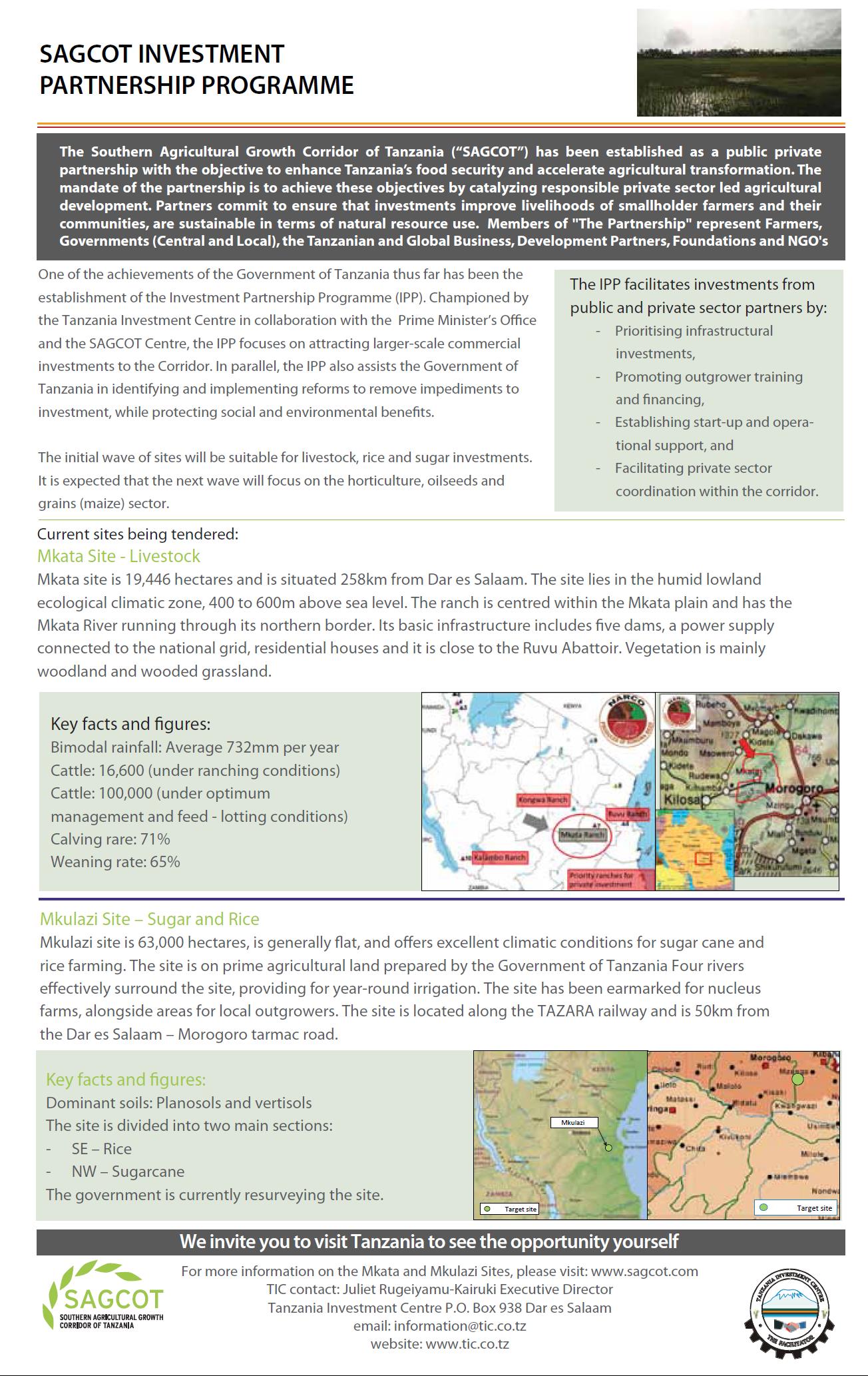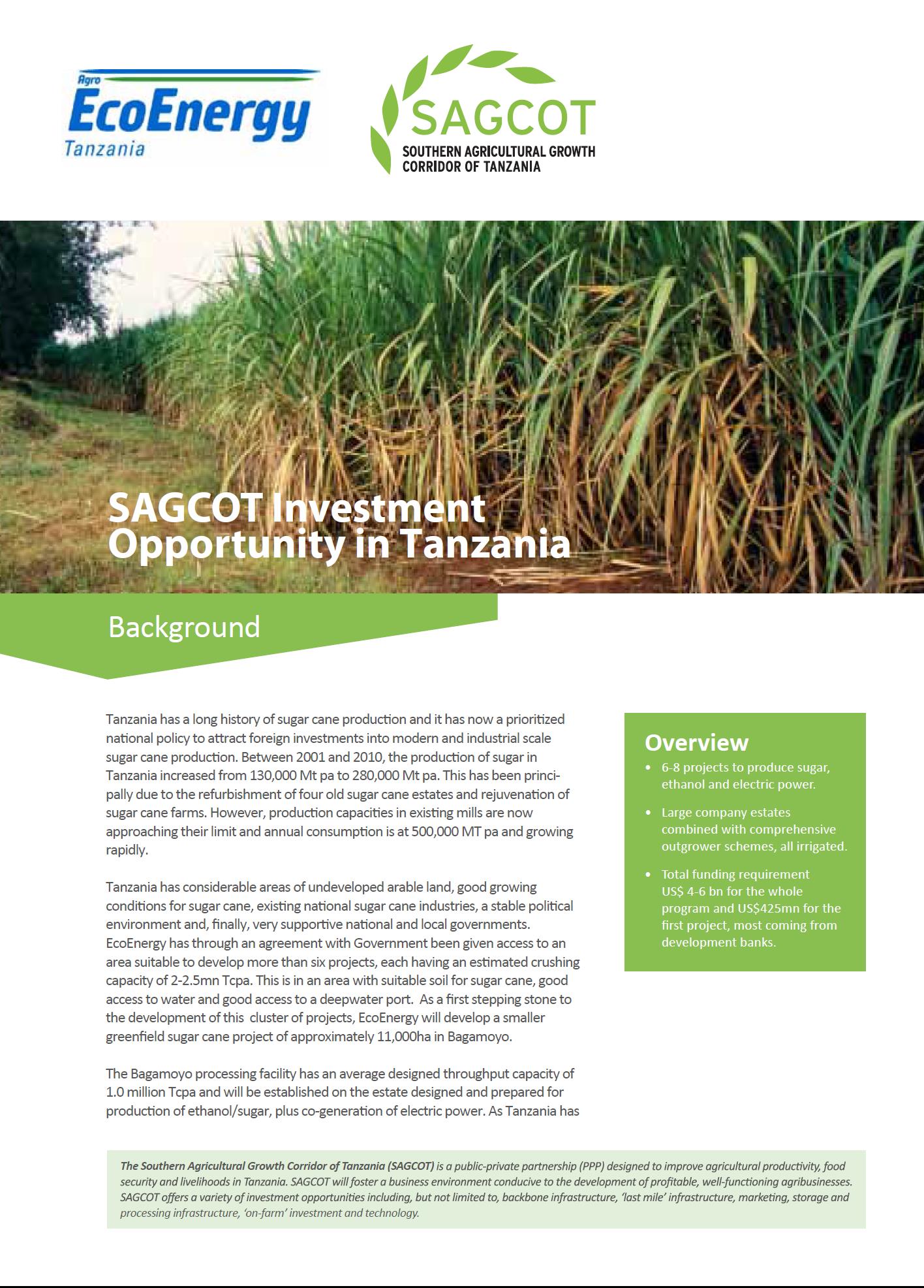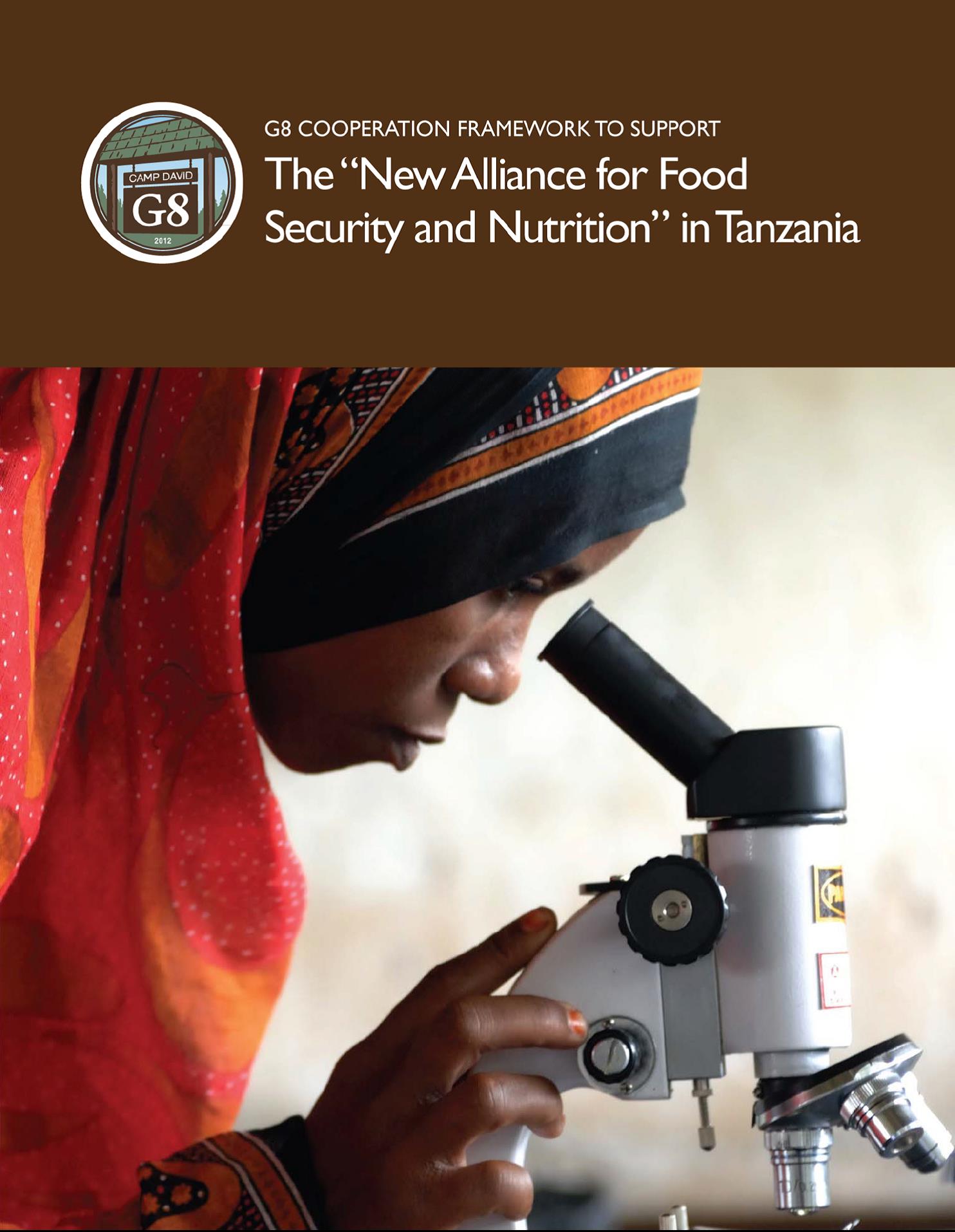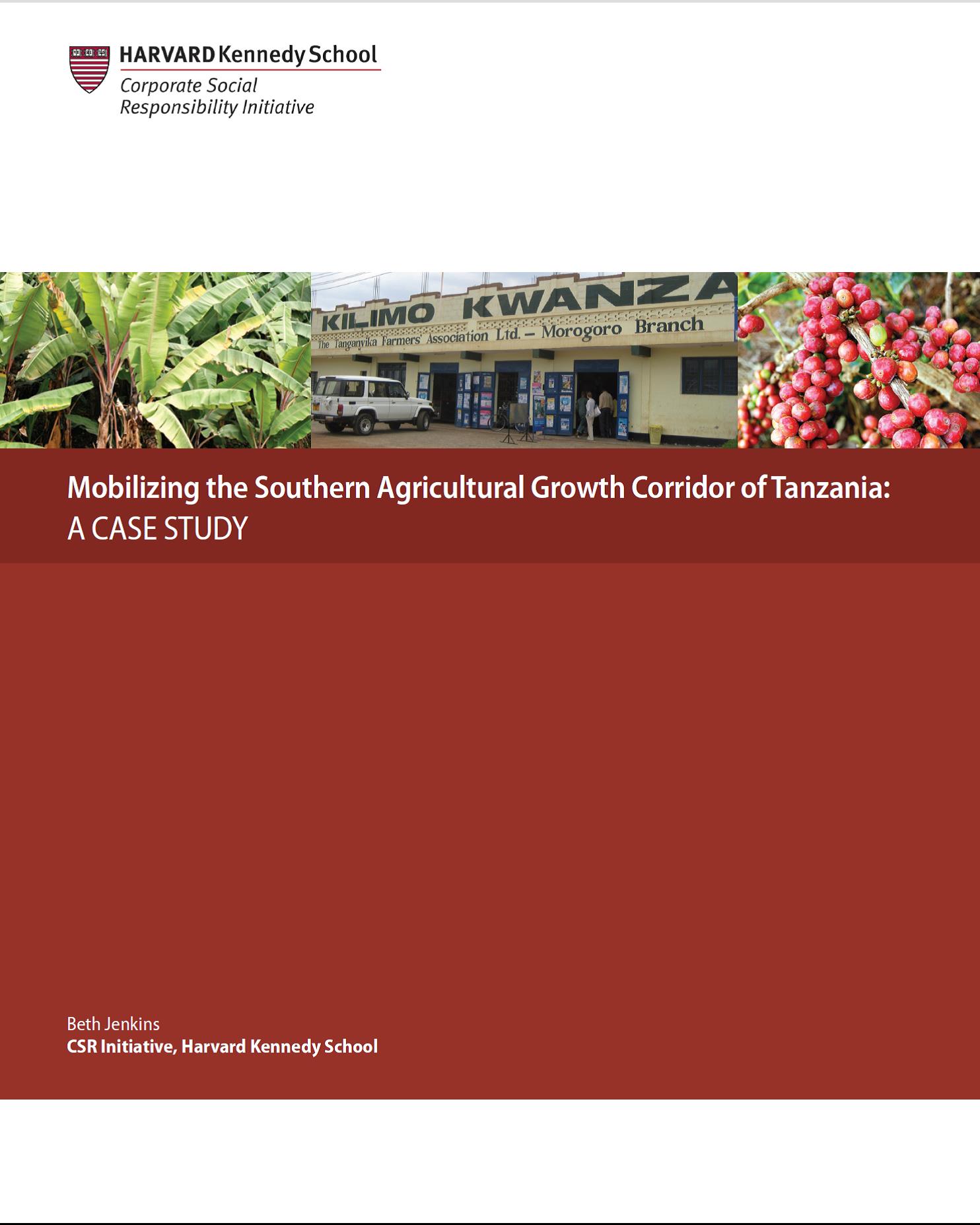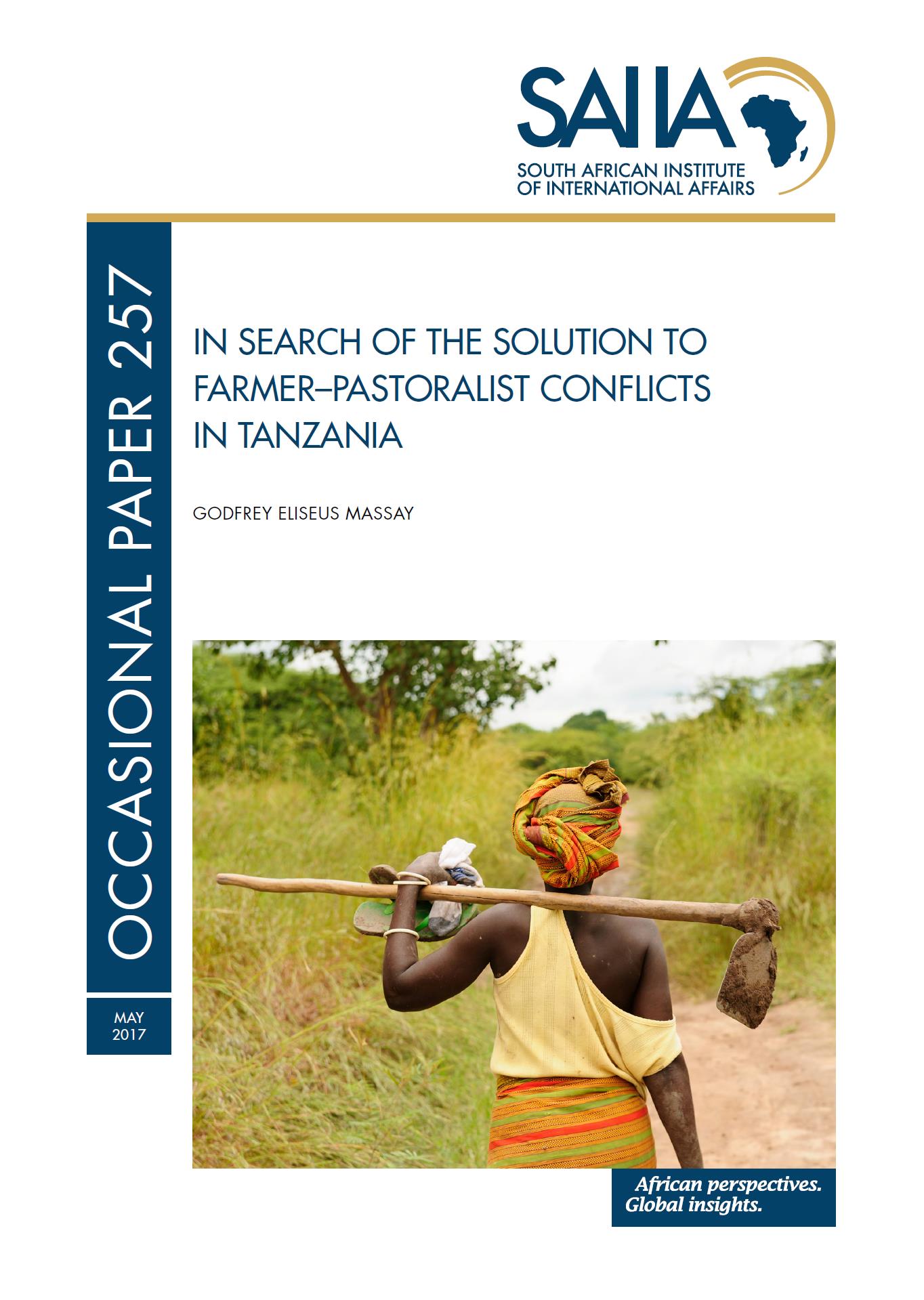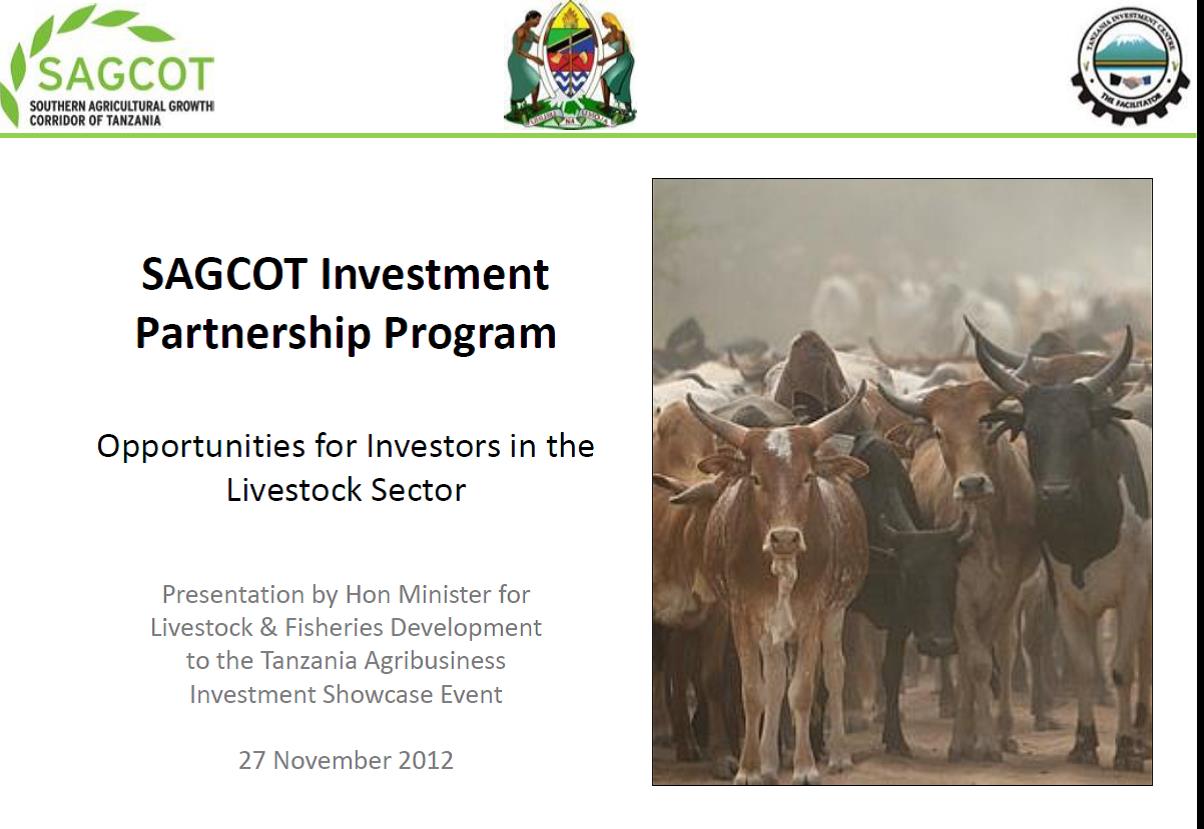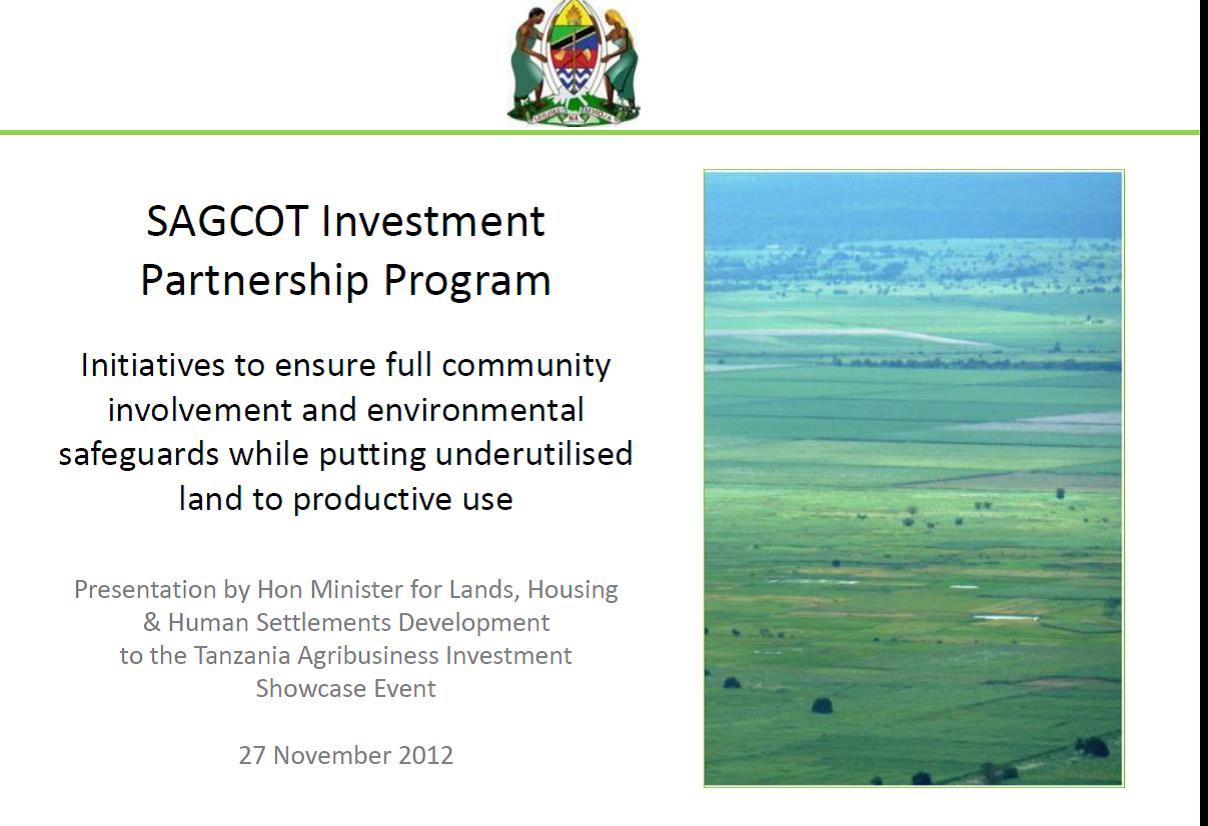Why invest in Tanzania’s agriculture?
Government has come together with the private sector and donor community to develop sustainable, profitable agribusinesses across the high-potential Southern region of Tanzania. This region is a key focus for efforts to improve the operating environment for investments in agriculture. Through the Southern Agricultural Growth Corridor of Tanzania (SAGCOT), US$3.5b will be mobilized in investment into this region over the next 20 years.

